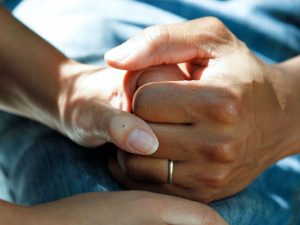Suicide Assessment, Follow-Up Care
 Suicide is a preventable and growing public health risk, and nurses are in a prime position to provide assessment and follow-up care. Many nurses lack sufficient education to assess suicide, but a growing body of information is available.
Suicide is a preventable and growing public health risk, and nurses are in a prime position to provide assessment and follow-up care. Many nurses lack sufficient education to assess suicide, but a growing body of information is available.
As the primary providers of hospital-based and long-term care, nurses hold a prime position to act as change agents in the suicide epidemic. In a survey by the Substance Abuse and Mental Health Service Administration, only half of health care professionals reported receiving education on suicide assessment and follow-up care, and only a third felt strongly that they had the knowledge and comfort in using those skills. Yet The Joint Commission’s updated National Patient Safety Goal addressing suicide prevention emphasizes the need for suicide assessment and follow-up education.
The ability to connect and build rapport is essential to the suicide assessment process. Use a caring and nonjudgmental approach to allow the patient to feel emotionally supported and safe. Educate the patient about suicide and validate their feelings, while also conveying hope for the future. People who are suicidal don’t fit a set stereotype, so treat them as individuals with unique backgrounds and needs. Collaboration provides the foundation of an accurate assessment and follow-up. A common myth persists that assessing for suicide will put the idea of suicide in the patient’s head. However, the only way to detect suicide risk is by talking about it.




